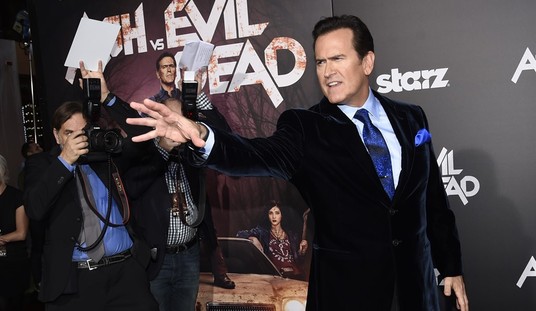The electric vehicle push began in 2020, when California Gov. Gavin Newsom signed an executive order to phase out the sale of gas-powered vehicles. Since then, Republican Rep. Kevin Kiley (CA-03) and the GOP-led Congress have been able to block the executive order, and currently, Newsom's illogical plan has been halted in its tracks.
I've just introduced Congressional Review Act Resolutions to overturn Gavin Newsom's EV mandates for cars and trucks. This will stop his attempt to ban gas-powered cars in California. It is a major step in our efforts to Newsom-Proof California.
— Kevin Kiley (@KevinKileyCA) April 3, 2025
We are using a special… pic.twitter.com/x04b93FG3S
We are using a special legislative mechanism to overturn agency decisions. That means my Resolutions will get an up-or-down vote. They cannot be filibustered by the Senate.
Despite the constant criticism from the left about Elon Musk, Tesla is the electric vehicle that has seen success over the years, as other companies, such as Rivian, have struggled to convince consumers to buy their electric SUVs. Luke Lynch, Rivian's chief engineer, told ABC News:
2.5 seconds for a seven-seat, three-row SUV? That's crazy. In sport mode, the suspension is lower and stiffer. It feels more like a sports car than an SUV.
While that may be true and sounds nice, people want to be able to drive more miles, not wait nearly an hour for the vehicle to charge up to just 80 percent, especially while commuting to work and back or going on a family road trip. I believe that the biggest issue for electric vehicle companies is the charging time. Once somebody can create chargers where people can have the vehicle fully charged within five minutes, more EVs will sell. However, that is not the only issue. In a state like California that experiences blackouts, unless that household has a standby generator or a gas-powered vehicle, they will not be able to charge or drive during that time, which is a major concern for those who have been on the fence about whether to buy an EV or not.
Not everything is doom and gloom for EV manufacturers, however. Vice President of data and analytics at J.D. Power, Tyson Jominy, said the consumer pool for EV demand has dried up, but added there aren't many EVs out there.
"The [consumer] pool has dried up dramatically, as expected," Jominy told ABC News. "A lot of automakers have stepped in with incentives to get rid of what's on the ground already, but there are not a lot of EVs out there."
"There are a lot of EV owners who say they will never go back to an ICE [internal combustion engine] car. Long-term EV growth will continue."
Whether EV growth will continue or not remains to be seen; however, Tesla is the clear winner when it comes to global EV sales:
NEWS: Tesla absolutely dominated global EV sales in September, with the Model Y coming in at #1, followed by the Model 3 at #2
— Dalton Brewer (@daltybrewer) November 11, 2025
Both Tesla models sold over 200k units combined!$TSLA pic.twitter.com/yQEAxIrVOQ
We saw EV sales begin to climb as gas prices rose nationwide under the Biden administration. Another question for EV manufacturers could be, as gas prices continue to decline now under the Trump administration, will people switch back to gas-powered vehicles or stick with their EVs or hybrid models? That remains to be seen, but as of this year, gas-powered vehicles are losing market share.
In the United States, 46 percent of EV owners want to switch back to an internal combustion engine vehicle. Globally, that number is at 29 percent. Edmunds' director of insights, Ivan Drury, had this to say about EV drivers wanting to switch back to gas-powered vehicles:
“Once you turn someone off, it’s a lot harder to get them back. Their experience is already mired in negativity. For someone for whom it’s going to be the charging component, or maybe the range wasn’t good enough, or battery degradation. Maybe [EV buyers] experienced it firsthand, and it was so bad, and they lived in a cold weather state where they said, ‘You know, I’m never gonna buy one again.’”
I’ve owned a Tesla Model 3 for years.
— Matt Van Swol (@mattvanswol) January 8, 2024
I bought a new gas vehicle because it is:
1) a roomy 7-seater
2) doesn’t lose range in the cold
3) costs less than $50k
Many American families are doing the same. pic.twitter.com/2haVFwyUys
This debate will continue for years, but the numbers will tell the story. As some drivers move from gas-powered vehicles to EVs -- and some switch back -- it will become more evident which direction the consumers will go.














